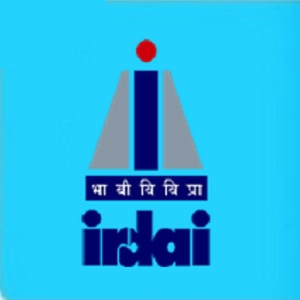Dear Aspirants,
Welcome to Insurance Awareness Questions in AffairsCloud.com. Here we are covering some important Insurance Awareness Questions & Answers with Explanations. Do study this questions thoroughly as it may prove to be helpful in upcoming exams and also in interviews.
- _____ is a coverage up to specific limits for the cost of ransom or extortion payments and related expenses
A. Internet Liability Insurance
B. Kidnap/Ransom Insurance
C. Inland Marine Insurance
D. Gap InsuranceB. Kidnap/Ransom Insurance
Explanation:
Kidnap/Ransom insurance provides protection, risk mitigation, and crisis management for a wide range of crisis-related risks. - The Complaint to Insurance Ombudsman must be registered within ____ year(s)
A. 4
B. 3
C. 2
D. 1D. 1
Explanation:
We must file the complaint with the ombudsman within a year of the rejection of our claim by the insurer. - A technique that consists of staggering the maturity dates and the mix of different types of bonds is termed as _______
A. Laddering
B. Fire Insurance
C. Escrow Account
D. Earned PremiumA. Laddering
Explanation:
Laddering means you buy multiple smaller policies that custom tailor your needs rather than one large policy. - _______ is a coverage for bodily injury or property damage caused by an intoxicated person who was served liquor by the policyholder.
A. Liquor Liability
B. Inflation Guard Clause
C. Inland Marine Insurance
D. Gap InsuranceA. Liquor Liability
Explanation:
Any business that sells or serves alcoholic beverages, including restaurants, nightclubs, and bars, can be held liable for damages or injuries caused by intoxicated patrons. - What is the maximum claim amount for an Insurance Ombudsman complaint?
A. 10 lakh
B. 15 lakh
C. 5 lakh
D. 20 lakhD. 20 lakh
Explanation:
Ombudsman’s powers are restricted to insurance contracts of value not exceeding Rs. 20 lakhs. - Which section of the Indian Insurance Act 1938 provides for nomination of a person?
A. Section 39
B. Section 38
C. Section 37
D. Section 36A. Section 39
Explanation:
Section 39 of the Indian Insurance Act, 1938, provides for nomination of a person (called nominee) who gets the benefits of the policy on death of the person whose life has been insured. - A professional liability coverage for physicians, lawyers, and other specialists against suits alleging negligence or errors and omissions that have harmed clients is termed as _______
A. Malpractice Insurance
B. Inflation Guard Clause
C. Inland Marine Insurance
D. Gap InsuranceA. Malpractice Insurance
Explanation:
A type of professional liability insurance purchased by health care professionals and sometimes by other types of professionals like lawyers. - Any insurance risk resulting from a human decision is called _____
A. Partial Risk
B. Static Risk
C. Dynamic Risk
D. Pure RiskC. Dynamic Risk
Explanation:
Integral part of a speculative decision where only three alternatives are possible: gain, loss, or break even.
Dynamic risks are not insurable. - ______ is a coverage that guarantees bondholders timely payment of interest and principal even if the issuer of the bonds defaults.
A. Internet Liability Insurance
B. Kidnap/Ransom Insurance
C. Municipal Bond Insurance
D. Gap InsuranceC. Municipal Bond Insurance
Explanation:
Municipal bond insurance companies guarantee that the interest and principal of a municipal bond will be paid on time if the bond issuer is unable to do so. - A company owned by its policyholders that returns part of its profits to the policyholders as dividends is known as ______
A. Service Provider
B. Composite Insurer
C. Mutual Insurance Company
D. None of the AboveC. Mutual Insurance Company
Explanation:
A mutual insurance company is an insurance company owned entirely by its policyholders. Any profits earned by a mutual insurance company are rebated to policyholders in the form of dividend distributions or reduced future premiums.
Click Here To View Insurance Awareness Questions
AffairsCloud Recommends Oliveboard Mock Test
AffairsCloud Ebook - Support Us to Grow
Govt Jobs by Category
Bank Jobs Notification




